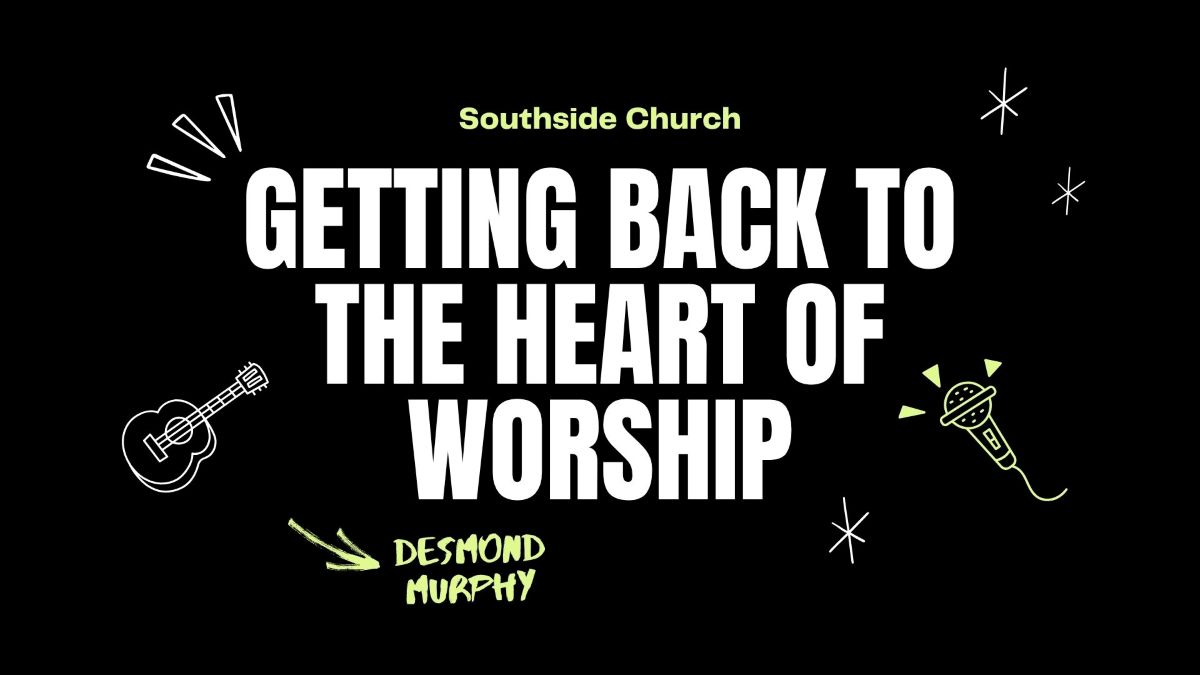True worship originates with an inward posture of the heart that is always bowed down in humble, awe-filled recognition of God’s worthiness
Growing up in the church, I, like many of you, understood worship to be primarily what we do on Sunday mornings. But worship is so much more – it’s a lifestyle, a posture of the heart, and our ultimate purpose.
What is Worship?
When we look at the biblical languages, we gain a deeper understanding of what worship truly entails. The Hebrew word Shachah literally means “to bow down,” suggesting a physical act of reverence and submission. The Greek word proskuneō, translated as “worship,” means “to encounter God and praise Him.” Both terms highlight worship as an activity or an action.
Worship is far more than just outward actions or Sunday morning routines. It’s important to distinguish between praise and worship:
- Praise is acknowledging God for what He has done and what He is going to do. It’s about His mighty acts and His faithfulness in our lives.
- Worship is acknowledging God for who He is. It’s rooted in His unchanging character, His nature, and His divine essence.
Worship is about lifting our eyes above our everyday circumstances and fixing them on Jesus, the author and finisher of our faith. It is the one activity we will continue to do in heaven! Yet, worship isn’t confined to music and singing, nor is it limited to a building or a gathering of believers. Worship is anything you and I do to esteem and magnify the worth-ship of God.
True worship originates with an inward posture of the heart that is always bowed down in humble, awe-filled recognition of God’s worthiness, honouring and revering Him at all times as the supreme authority over one’s life (Psalm 51:17; 95:6; Revelation 4:11). We were, in fact, created to worship God!
Jesus challenged the Pharisees and scribes, saying they were like the people of Isaiah’s day who honored God with their lips, but their hearts were far from Him (Matthew 15:7–9). This tells us something crucial: true worship can only come from a heart that has been redeemed and is in right relationship with God (John 4:23; see also Isaiah 59:2; Hosea 6:6; 1 Corinthians 2:11; 2 Timothy 3:5).
John 4:24 states, “God is Spirit, and those who worship Him must worship in spirit and truth.” To worship in spirit means our worship flows from our innermost being, guided by the Holy Spirit. To worship in truth means it is based on the Word of God, on who Jesus truly is (John 14:6). This means we must be careful with what we sing and declare – our declarations should align with God’s character and His Word, not just our feelings.
Ultimately, worship is all about God – John 3:30, “He must increase, but I must decrease.” When we truly worship, our focus shifts entirely from ourselves to Him.
Why is God Worthy of Worship?
God is worthy of our worship because of who He is. His character, His power, His love, and His faithfulness are beyond comprehension. The Bible reveals Him to us through various names, each highlighting a facet of His magnificent being:
- YAHWEH or Jehovah: This is God’s covenant name, often translated as “LORD” in all capitals. From the verb “to be,” meaning “The Self-Existent One,” “I AM WHO I AM” or “I WILL BE WHO I WILL BE” (Exodus 3). It signifies His eternal, unchanging nature.
- ELOHIM (Genesis 1:1): God as Creator, Preserver, Transcendent, Mighty and Strong. This name speaks of His absolute power and sovereignty over all creation.
- EL SHADDAI: Translated as “God Almighty” or “God All Sufficient.” This name reminds us that He is more than enough for all our needs, capable of fulfilling every promise. If anxiety and worry are part of your life, it might be that you are bowing down to a lesser god, failing to fully trust in El Shaddai.
- Jehovah Nissi: “The Lord is my banner” or “The Lord is our banner” (Exodus 17:15). This name signifies God’s presence, protection, and victory over our enemies.
- Jehovah Rapha: “The Lord Who Heals” (Exodus 15:26). God is our healer – physically, emotionally, mentally, and spiritually. He restores and makes whole.
- Jehovah Shammah: “The Lord is there” (Ezekiel 48:35). This name assures us of His constant presence with us, no matter where we are or what we face.
- Jehovah Raah (Rohi): “The Lord Is My Shepherd” (Psalm 23). He is our loving guide, provider, and protector, caring for us as a shepherd cares for his flock.
- Jehovah Shalom: “The Lord is Peace” or “The Lord Is Our Peace” (Judges 6:24; Isaiah 26:3). He grants perfect peace to those whose minds are steadfast, trusting in Him.
- Jehovah Jireh: “The Lord will provide” (Genesis 22). This powerful name assures us of God’s faithful provision, often revealed in unexpected ways, just as He provided a ram for Abraham. His provision was there even before Abraham went up the mountain.
Sometimes, we struggle to see God’s provision in our everyday lives. Like Simon Peter, we might operate from a “lack mentality” instead of understanding the God of abundance. Peter, though skilled, toiled all night catching nothing. But when he placed what he had (his boat, his effort) in God’s hand and exercised his faith, he experienced a supernatural, net-breaking blessing. God’s provision was there before he even went out to sea; he just needed to step into it.
John 10:10 reminds us, “The thief comes only to steal (joy) and kill (faith) and destroy (hope). I came that they may have life and have it abundantly.” Jesus came to give us a life of abundance, not just for ourselves, but so we can be a blessing to others. Deuteromony 31:8 encourages us: “The LORD himself goes before you and will be with you; he will never leave you nor forsake you. Do not be afraid; do not be discouraged.”
What is My Response?
Given who God is and all He has done, what then is our response? Psalm 95:6–7 gives us a clear directive: “Oh come, let us worship and bow down; let us kneel before the Lord, our Maker! For he is our God, and we are the people of his pasture, and the sheep of his hand.”
Our response to God’s immense worthiness should be one of humble adoration and complete surrender. It means acknowledging Him as our Creator, our Shepherd, our Provider, our Healer, our Peace, and our Banner. It means letting go of our own anxieties and striving, and trusting fully in His character.
Reflect:
- Beyond Sunday mornings, what practical ways can I consciously worship God throughout my everyday life this week?
- Thinking about the names of God (Jehovah Nissi, Rapha, Shalom, Jireh, etc.), which specific aspect of God’s character do I need to lean into more deeply in my current circumstances?
- Are there any “lesser gods” (like worry, fear, self-reliance, or possessions) that I might unknowingly be bowing down to? How can I re-align my heart to truly worship only God?
- In what areas of my life have I not fully embraced the character of God – perhaps His provision, His healing, or His peace? What steps can I take to cultivate a “more than enough” mentality instead of a “lack mentality”?
- What makes me stand in awe of God today? Take a moment to reflect on His goodness and majesty in your own life.
Closing Prayer:
Heavenly Father, we come before You this morning with hearts open and ready to receive. Thank You for revealing Yourself to us as more than just a distant deity, but as Yahweh, the great I AM, our Abba Father. Thank You for being Jehovah Jireh, our Provider; Jehovah Rapha, our Healer; Jehovah Shalom, our Peace. Forgive us, Lord, for the times we have limited our worship to moments or places, and for the times our hearts have been far from You. We pray for a renewed spirit of true worship within us – a worship that flows from a redeemed heart, in spirit and in truth. Help us to consistently lift our eyes from our circumstances to You, knowing that You are worthy of all our praise and adoration. May our lives be a continuous act of worship, glorifying Your holy name. In Jesus’ mighty name, Amen.
Watch the sermon on YouTube




